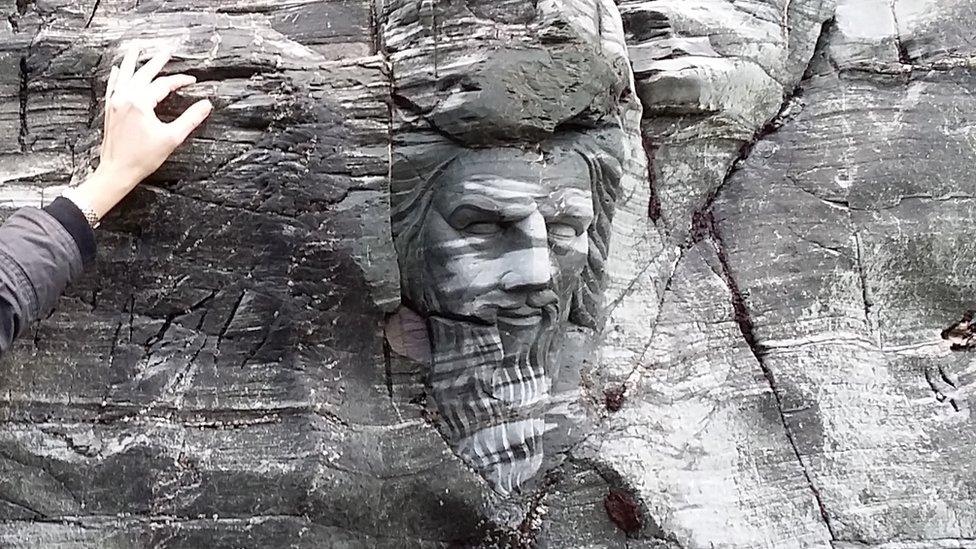Tintagel Castle excavations reveal the lives of kings
- Published

The Tintagel Castle Archaeological Research Project is a five-year scheme
Early Cornish kings feasted on oysters, roast pork and fine wine, archaeologists have found.
Excavations at Tintagel Castle have also revealed they imported bowls from Turkey and glass goblets from Spain.
Findings from a dig last year have been released this week, as archaeologists return to the site to find out how people lived more than 1,000 years ago.
The first research excavations at the castle in decades unearthed finds from the late 5th and 6th Centuries.
This included the discovery of a rubbish dump where they found a cod cranial bone, animal bone fragments and oyster shells which suggest they were eaten by the early kings, experts said.
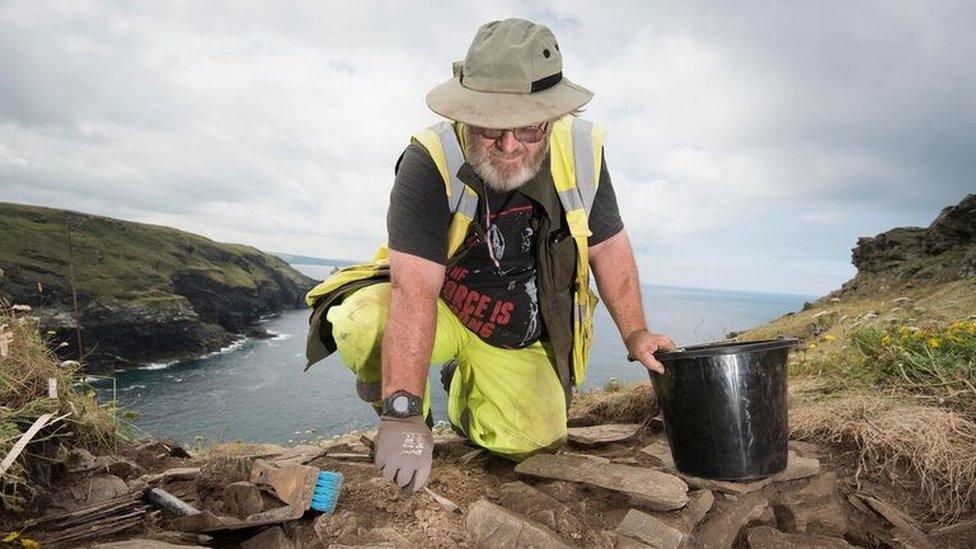
Archaeologists have returned to Tintagel Castle
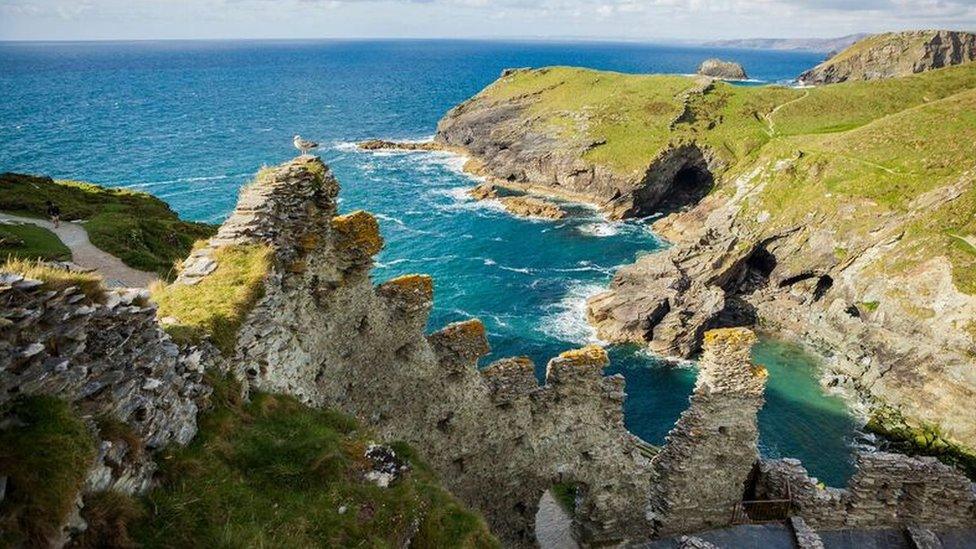
Tintagel Castle is one of the most important historic sites in Britain with links to King Arthur
English Heritage's properties curator, Win Scutt, said the finds painted a "highly evocative picture".
"It is easy to assume that the fall of the Roman Empire threw Britain into obscurity, but here on this dramatic Cornish cliff top they built substantial stone buildings, used fine table wares from Turkey, drank from decorated Spanish glassware and feasted on pork, fish and oysters," Mr Scutt said.
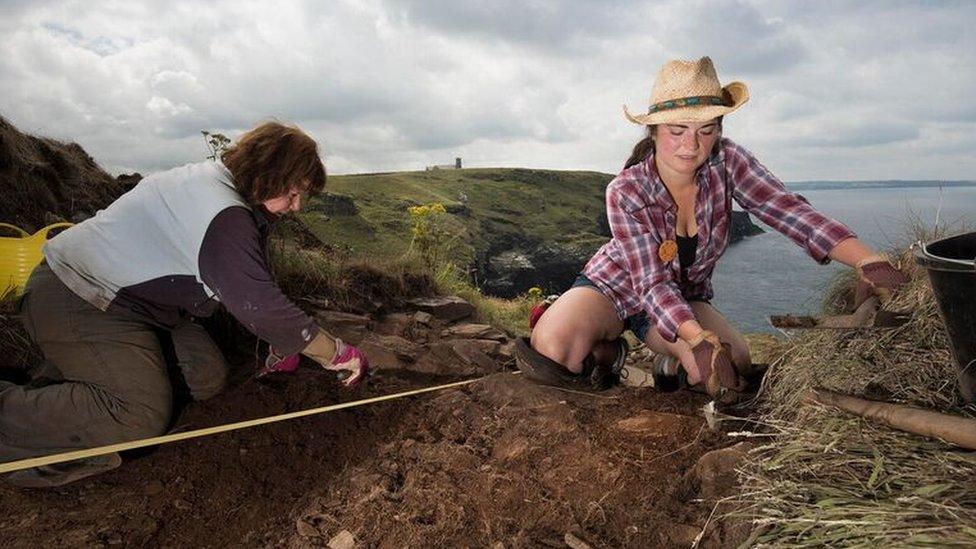
The first research excavations at the castle in decades unearthed finds from the late 5th and 6th Centuries
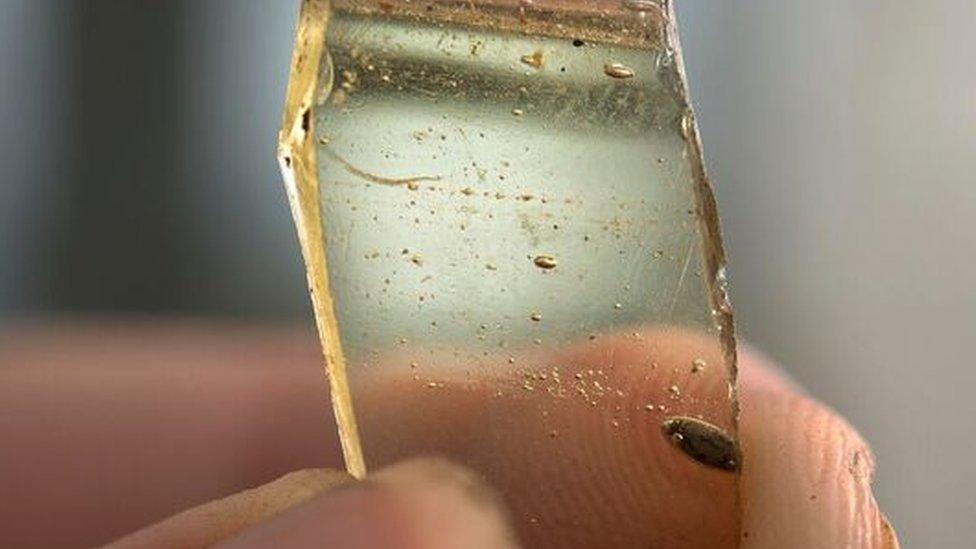
Fine glassware from Spain was among the items discovered
"They were clearly making use of products like wine and oil contained in amphorae traded from the eastern Mediterranean."
The Tintagel Castle Archaeological Research Project is a five-year scheme with two seasons of excavations at the castle.
As part of the latest excavations they found a number of "extremely interesting" iron artefacts including potential hunting paraphernalia from the late and post-Roman periods.
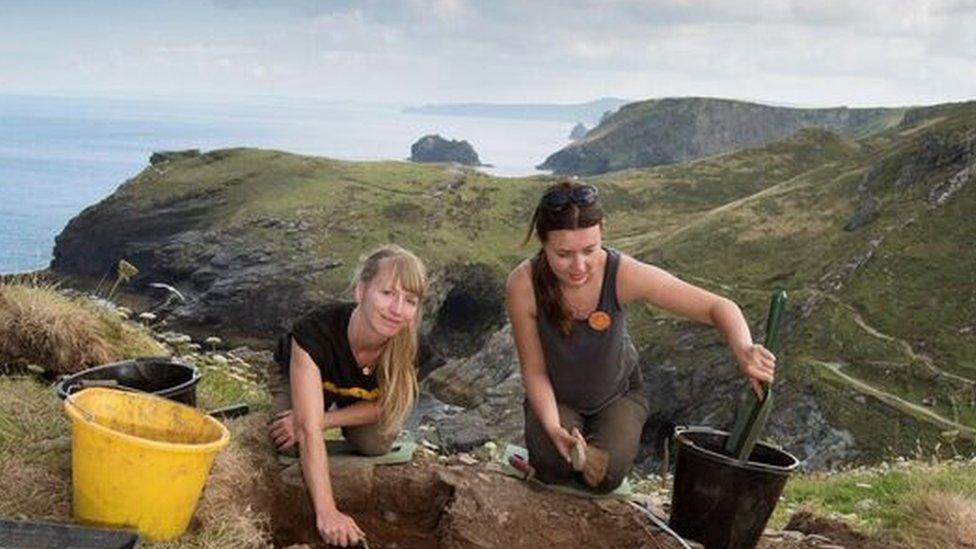
A number of walks, tours and digs are planned for the area over the coming years
- Published3 August 2016
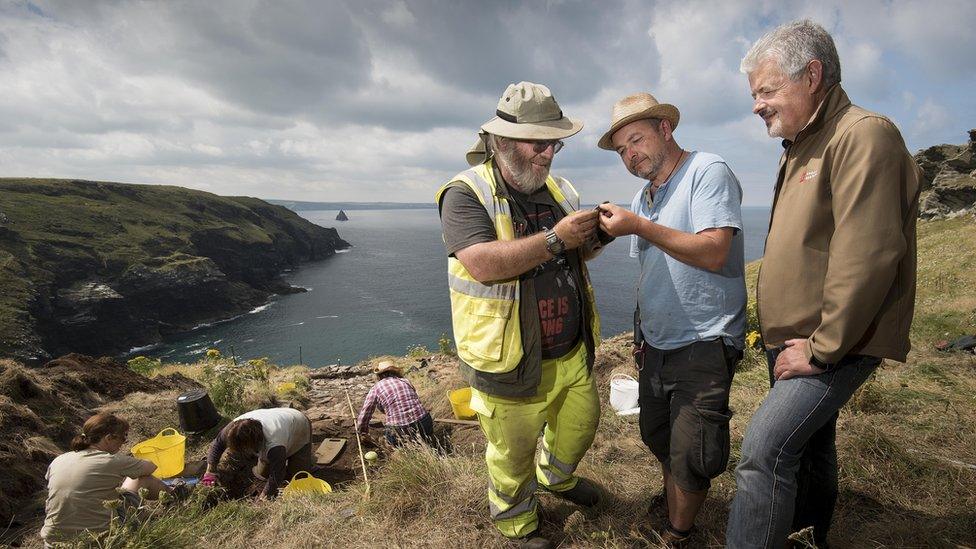
- Published18 March 2016
